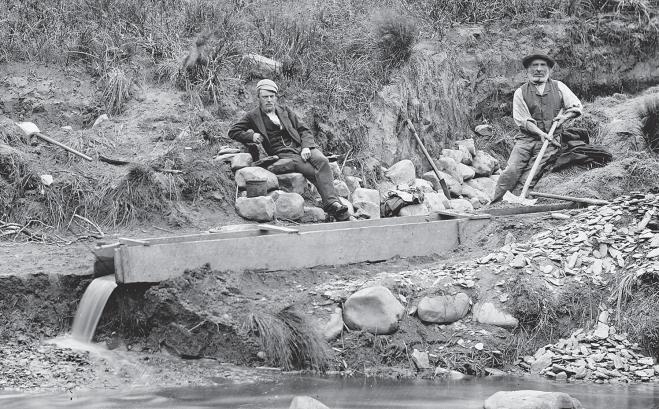1 minute read
Stoic efforts of anonymous settlersbuilt foundations
Next Article
THE foundingofOtago province hasnot been theachievement of thefew,like Cargill,Burns and Macandrew(although these threeoccupiedleadingroles), butofhundredsofothers, now anonymoustoanyoneexcepttheir directdescendants.
These first settlers were for themostpartsimpleand unpretentiousin their living, completelyabsorbedin their ownnarrowcircle, andseriously intent on overcomingthe immediate obstacles.Doing this, they builtfor themselves and their families some assuranceof future security.
Butinstolidly pursuing their dailyround,in accepting with unquestioningstoicism theinevitabledrudgeryand indescribablemonotonyofthe pioneer’slot,theywerehelping to found aprovince— although they maynever have realised it

Indeed,without herpioneer postmenand pilots, without thedrivers of theold bullock wagons andthe first coaches, and withoutall thosenow nameless menand womenofhumble origin, butsterlingworth,Otago couldnever have survived the first uneasythroesofbirth
The businessofsuccessfully foundinga settlement in anew countrydemanded theservices of very many different types of men. In earlyOtago,communication with neighbouring provinces (not to mentionwiththe outside world) waserratic andtransport difficulties were almost beyondconquering Long before settlement was made areality,Otago had heradministrators in theOld Country. Forexample,Captain Cargill in London,DrAldcorn in Glasgowand John McGlashan in Edinburgh— allkey men manning strategic posts
These were theagentsof propagandawho travelledwidely andcorrespondedincessantly, pressingforward theclaimsof emigrantsand extolling—at timesrathertoo heartily —the charms of Otago.
Andwhile they were thus occupied at Home,the first surveyingparties, thetrue vanguard of colonisation,had reachedcolonialshores.
Otago, with itshillsand forests, washardlya surveyor’s paradise.Evenso, CharlesKettle, with assistants Barnicoat and Davison, worked on undaunted foralmosttwo yearssothatthe first settlers, who arrivedlate in
March1848, might findthe sitesin readiness. With thearrivalofthe fir ships, the John Wickliffe andthe Philip Laing,the settlementassumed a more interestingand respectable aspect Untilthenithad been thehomeofa small Māoripopulation and thehaven of still fewer derelictand brokendown seamen, thelast relics of theriotous days of whaling. In keepingwiththe principles of theOtago scheme, FirstChurch was heir rst establishedimmediately under theRev ThomasBurns and JamesAdam. Adam,who later made hismarkinprovincial politics, wasappointed precentor andbell-ringeratwhatwas then considered amunificentsalary of £10 perannum.

Continued on Page 12
Otago Firsts
The first known writ for criminal defamation in New Zealand wasissuedbythe first Resident Judge of the Supreme Court in Otago, Mr Justice Stephen, in 1851. He filed acomplaint in his owncourt against agroup of Dunedin residents whom he alleged hadconnected his good name with adistasteful local scandal.
Founded in 1861 OtagoDaily Times wasthe firstdaily, newspaper to be publishedin NewZealand.Itwas preceded by the Otago News,which wasissued forthe first time on December13, 1848, and the Otago Witness,which wasfounded on February 9, 1851. The Otago Daily Times occupied abuilding overlooking QueensGardens from 1928 to 1977,and now occupiesthe Allied Press Building in lowerStuart St.
The first practical development of coal gas in NewZealand occurred when the Dunedin GasLight and CokeCowas formed on July 1, 1862. Gasmade from tallow wasusedinthe RoyalHotel, Dunedin,bythe proprietor Mr George Duncan, as early as January1858










